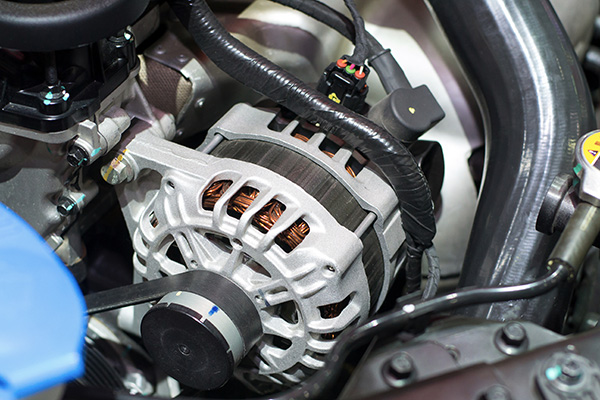
If your car is running, you’ve got your alternator to thank. While it often goes unnoticed, the alternator is a critical component in your vehicle's electrical system. Its job? To keep your car’s battery charged and power all the electrical components while the engine is running. But how exactly does this part work, and what happens if it starts to fail?
The Role of an Alternator
The alternator acts as your car's personal power plant. Once the engine is running, the alternator takes over from the battery, supplying the electricity needed to keep everything working—from your headlights and radio to the engine control systems. It also recharges the battery so that it’s ready to start the car the next time you turn the key.
How does it do this? The alternator uses a belt connected to the engine to generate energy. Inside the alternator, a magnetic rotor spins within a coil of wire, creating an electric current. This current is then converted into a form that your car’s battery can store and use.
Without a functioning alternator, your car wouldn’t last long. Once the battery’s charge runs out, you’ll be left with a dead vehicle.
Signs of a Failing Alternator
An alternator doesn’t fail out of the blue—it usually gives some clear warning signs before it stops working entirely. Knowing these can save you from being stranded on the road.
- Dimming or flickering lights: If your headlights or dashboard lights seem weaker than usual, it could mean the alternator isn’t generating enough power.
- Electrical issues: Struggling power windows, malfunctioning radio, or other failing electronics are often tied to an alternator problem.
- Battery warning light: Most modern cars have a dashboard light that illuminates if there’s an issue with the charging system, which often points to the alternator.
- A dead battery: If your battery keeps losing charge even though it’s relatively new, the alternator might be to blame.
- Strange noises: A failing alternator can sometimes produce grinding or whining sounds caused by worn-out bearings.
Ignoring these symptoms can lead to a breakdown, so it’s important to address them promptly.
What Happens if the Alternator Fails
When the alternator stops working, your car’s battery becomes the sole source of power. Unfortunately, car batteries aren’t designed to handle this load for long. With no alternator to recharge it, the battery will quickly deplete, and your vehicle will shut down.
Besides leaving you stranded, a failing alternator can also damage other components, like the battery and the electrical systems. That’s why it’s critical to address any signs of trouble early on.
Extending the Life of Your Alternator
Like most parts of your car, your alternator will eventually wear out. However, with a bit of care, you can maximize its lifespan:
- Check the belts regularly: The alternator relies on a belt to operate, and a worn or loose belt can cause it to work harder than necessary. Make sure the belts are in good condition and properly tensioned.
- Avoid overloading the electrical system: Using too many electrical devices at once, especially when the car is idling, can strain the alternator.
- Keep the battery in good health:A weak or dying battery forces the alternator to work overtime to keep it charged, leading to premature wear.
When to Replace an Alternator
Alternators aren’t designed to last forever. On average, they’ll last between 7 and 10 years, depending on driving habits and environmental conditions. Regular inspections can catch small issues before they turn into major problems. If you notice any warning signs or your car’s performance seems off, don’t hesitate to have it checked out.
Is your alternator giving you trouble? Visit DRIVE AutoCare for a thorough inspection and expert repairs to keep your car running smoothly. Don’t wait until you’re stuck on the side of the road!